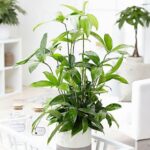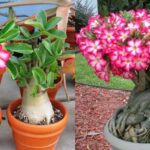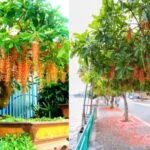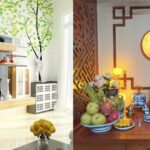Jade and Golden Leaves Tree
The Jade and Golden Leaves Tree, also known as Portulacaria afra, is considered a symbol of wealth and prosperity in Feng Shui. With its small, round, and thick branches and leaves, this tree not only adds beauty to living spaces but also represents prosperity and happiness.
In traditional belief, this tree possesses the ability to attract wealth, hence, it is often placed near cashiers or at the entrance of shops to activate financial energy. Beyond its Feng Shui significance, the tree also promotes the health of its owner, so placing it near a window or doorway brings benefits to overall well-being.
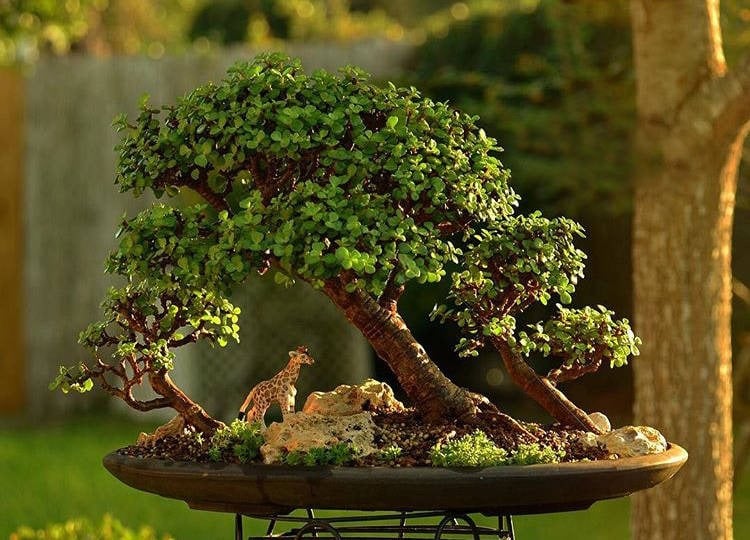
Jade and Golden Leaves Tree
The Jade and Golden Leaves Tree boasts a strong and vibrant life force, staying green and lush all year round. It has become a symbol of good luck, longevity, and vitality. This tree thrives in balconies or living rooms, as long as it receives sufficient sunlight. For optimal growth, periodic watering and fertilization are recommended, ensuring the tree remains lush and healthy.
Bougainvillea
Bougainvillea, with its vibrant colors and lush foliage, captivates not only with its beauty but also holds numerous positive Feng Shui meanings. According to folk belief, growing bougainvillea at home can bring financial prosperity and good luck, leading to happiness. This plant is seen as a symbol of protection, abundance, and the blocking of negative energies, thus creating a peaceful and prosperous space.
Bougainvillea’s vigorous life force also represents the values of simple and sincere love, as well as strong bonds. For optimal growth, gardeners should choose locations with ample sunlight, such as balconies facing south, east, or west, as well as living rooms.
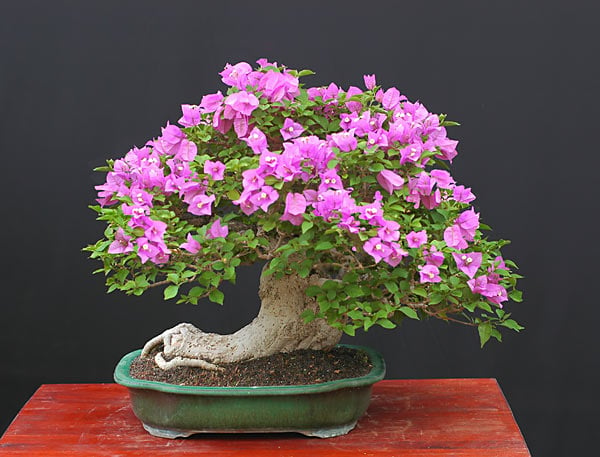
Bougainvillea
Bougainvillea blooms almost all year round, and to ensure abundant flowering, periodic pruning and fertilization are crucial. This enhances the vibrancy of the flowers and brings a joyful, positive atmosphere to living spaces.
Split-leaf Philodendron
The Split-leaf Philodendron (Monstera deliciosa) is considered a symbol of health, happiness, and good luck by ancient people. With its large, hole-riddled leaves resembling a turtle’s back, this plant not only adds a refreshing look to living spaces but also purifies the air, provides oxygen, and regulates humidity, creating an ideal living environment.
In Feng Shui, the Split-leaf Philodendron brings positive energy and longevity, especially beneficial for elderly family members. The fan-like shape of the leaves represents balance and a strong life force, contributing to peace and ease in life.
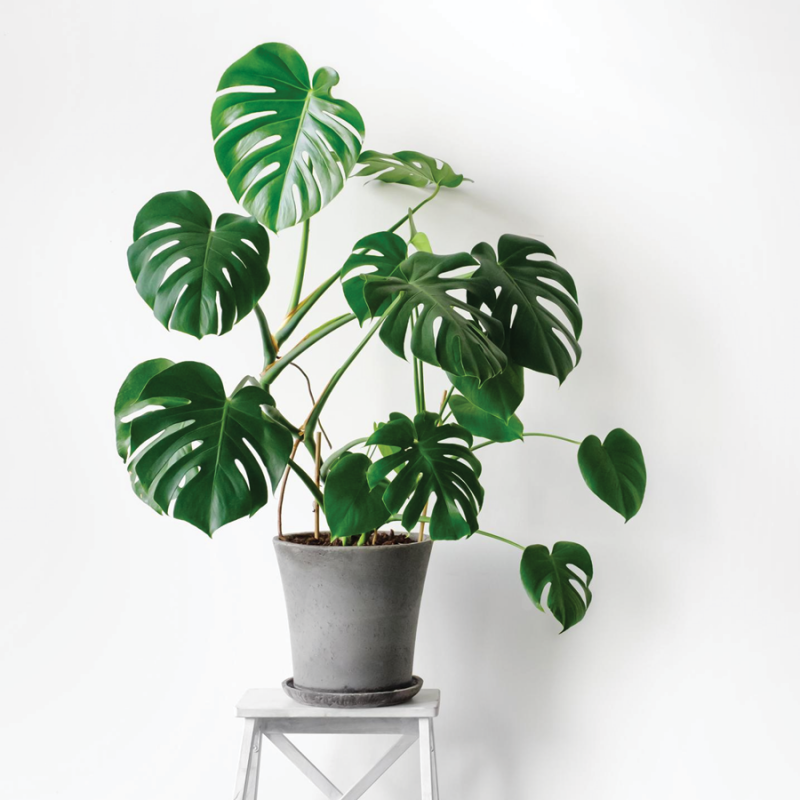
Split-leaf Philodendron
This plant is easy to grow and requires well-drained soil. It is suitable for placement in living rooms, offices, and bedrooms, where indirect sunlight helps it thrive. Periodic fertilization promotes the plant’s growth, allowing it to maintain its beauty and positive energy throughout the year. Growing Split-leaf Philodendron indoors not only enhances the flow of energy but also makes life more comfortable.
Bird of Paradise Plant
The Bird of Paradise Plant, with its large and lush leaves, serves not only as an aesthetic accent to living spaces but also carries auspicious Feng Shui meanings. According to ancient beliefs, the thick and healthy leaves of this plant symbolize wealth, prosperity, and happiness for the family.
The large leaves, comparable in size to banana leaves, enhance the plant’s air-purifying capacity and dust absorption, contributing to a healthier home environment. The stomata on the leaves can absorb pollutants, ensuring a clean and safe living space.
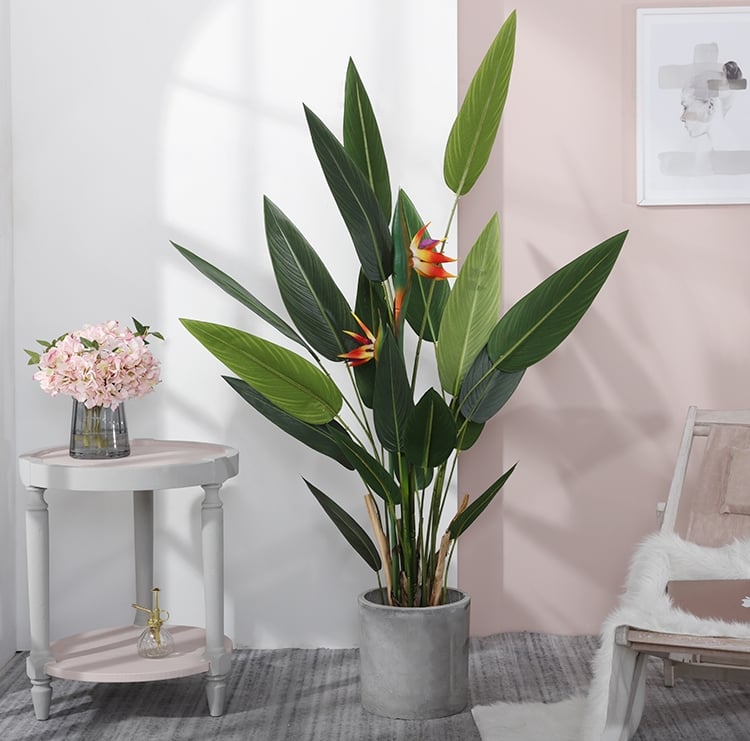
Bird of Paradise Plant
From a Feng Shui perspective, the Bird of Paradise Plant represents harmony, good luck, and the aspiration for a better life. Placed in the living room, it not only adds a touch of elegance but also emphasizes peace and happiness within the family.
To thrive, this plant prefers warm and humid conditions. Summer is the ideal season for vigorous growth, while during autumn and winter, the temperature should be maintained above 15 degrees Celsius, and diverse fertilization is necessary to ensure its vitality and beauty. Avoid direct sunlight on hot days to preserve the freshness of the leaves.
Dragon Tree
The Dragon Tree, with its unique shape and long, soft leaves, is not only a visually appealing ornamental plant but also carries profound Feng Shui meanings. Traditionally, it is considered a symbol of prosperity and good luck, representing strength and power. The clusters of leaves shaped like dragon heads highlight its majestic and noble presence.
Notably, the Dragon Tree has an extremely long lifespan, capable of living for hundreds or even thousands of years with proper care. This longevity symbolizes extended happiness and fulfillment in life, aligning with humanity’s desire for longevity and prosperity.
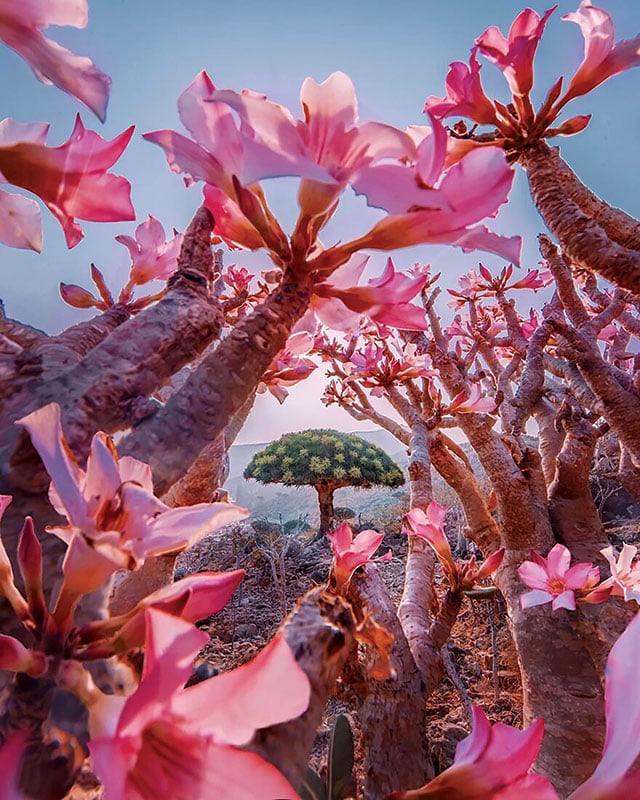
Dragon Tree
In ancient Feng Shui beliefs, the Dragon Tree not only enhances wealth but also promotes family harmony. Placing it in living spaces, particularly the living room, is thought to generate positive energy and bless the family with good fortune, while also safeguarding the health of its members.
The Dragon Tree thrives in warm and humid environments. To ensure its healthy growth, use well-aerated, porous soil and add organic fertilizer to enhance soil fertility. Proper care not only beautifies living spaces but also improves Feng Shui, attracting wealth and prosperity.
Therefore, growing the Dragon Tree is not merely a decorative choice but also a wise decision for those seeking to enhance their luck and create a fulfilling life.
Information is for reference only
“A Well-Lit Room’s Dichotomy: The Cultural Conundrum”
The age-old adage, “a bright living room is a sign of prosperity, but a bright shrine will lead to decline,” is an intriguing concept. It sparks curiosity about the reasoning behind this statement and the cultural significance it holds. This proverb hints at the delicate balance between opulence and humility, suggesting that while a well-lit living space reflects success, an overly illuminated shrine can lead to an imbalance of fortune.

























